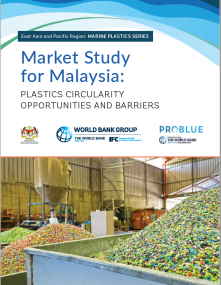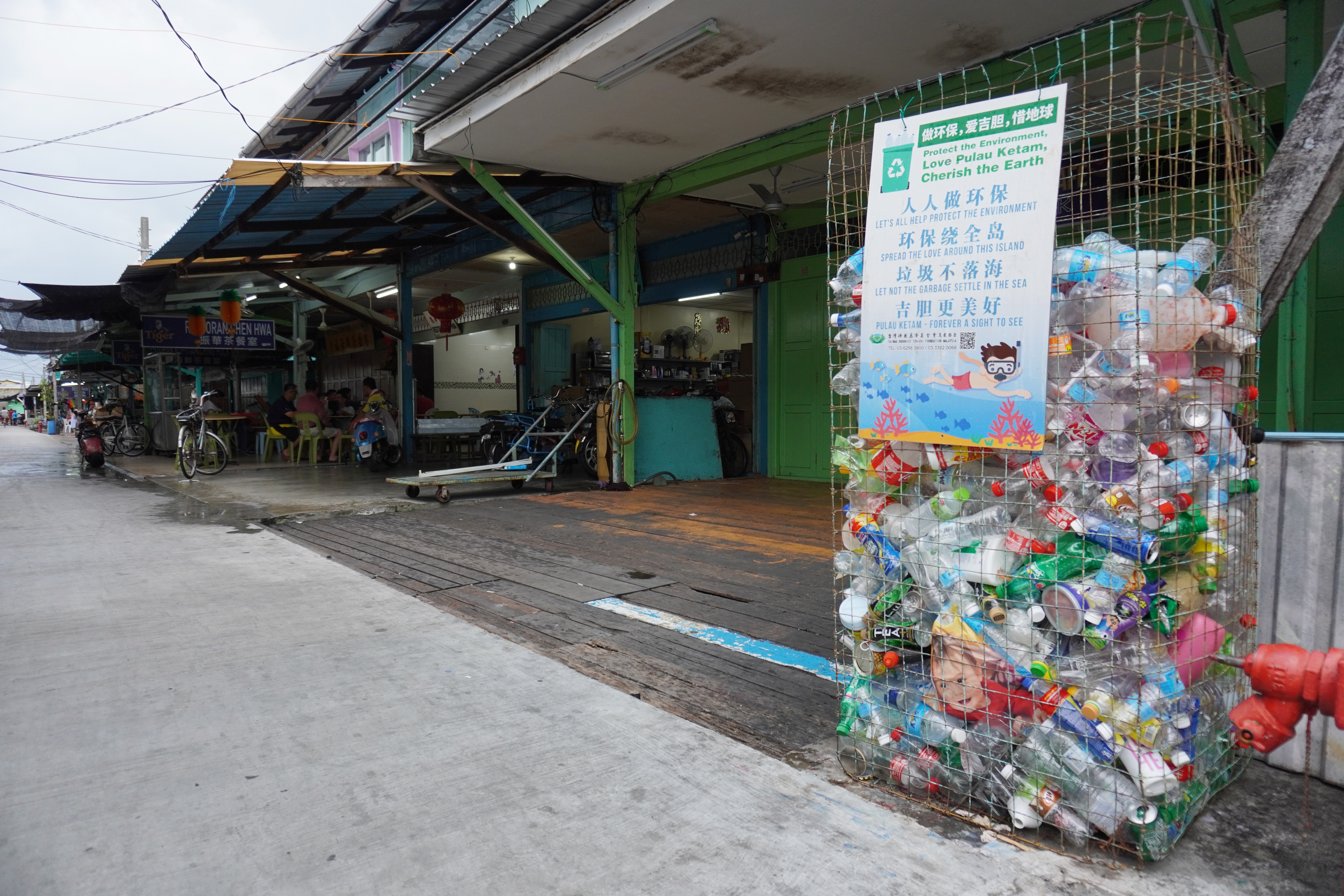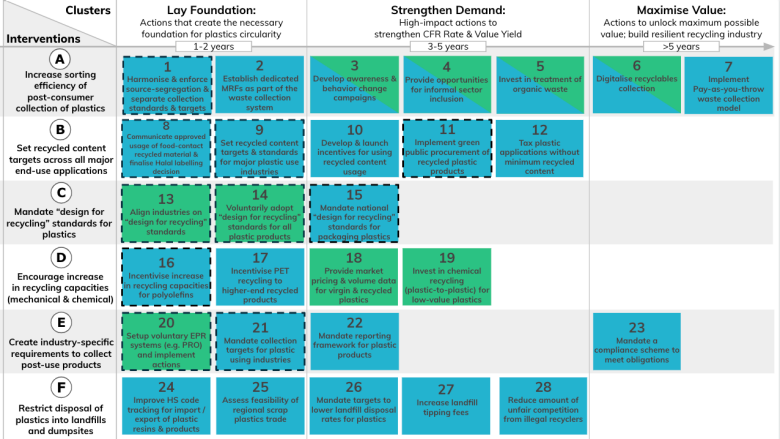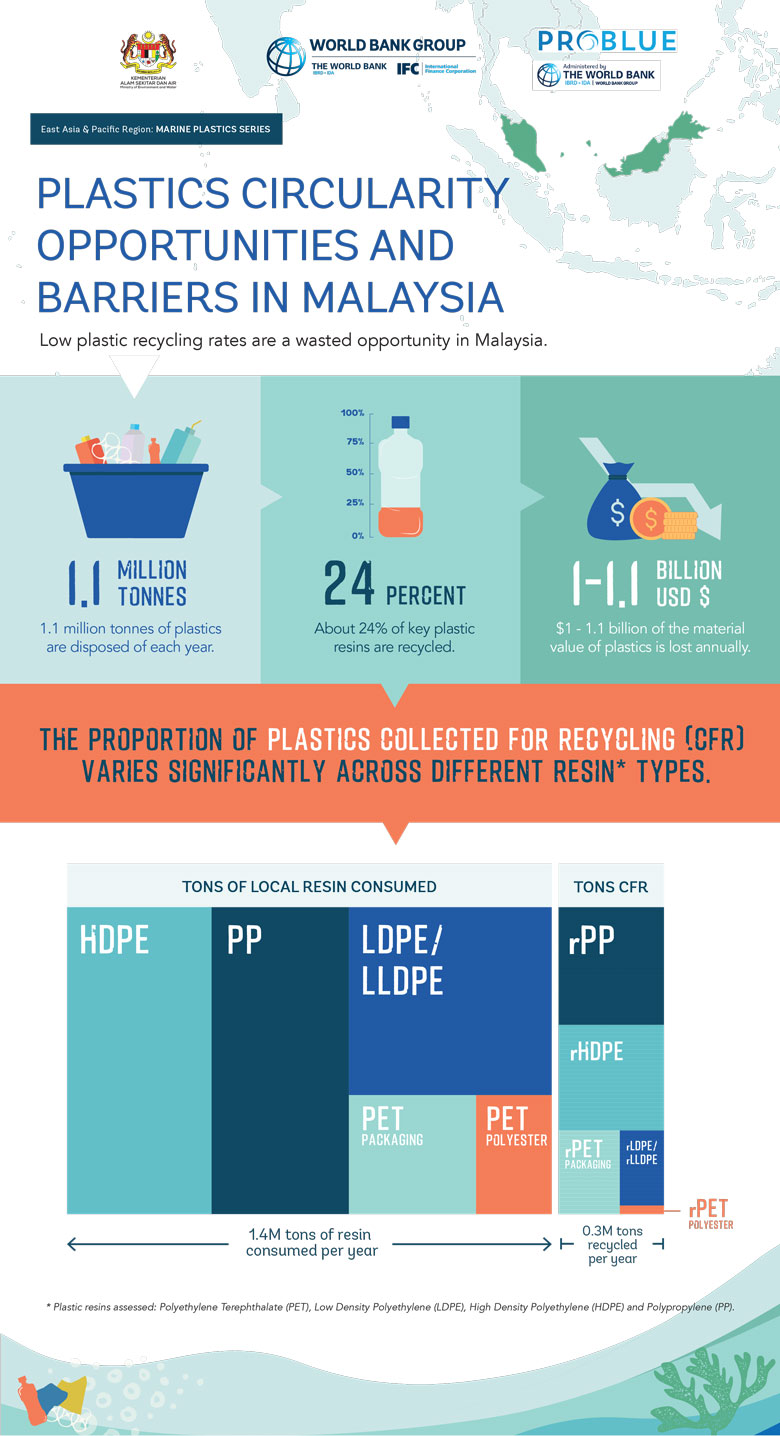

Photo: Plastic and tin sorting recycle bin at the side of the street in Selangor, Malaysia / Shutterstock
The plastics manufacturing industry is a growing and dynamic sector in Malaysia, contributing US$7.23 billion to the national economy in 2018 (4.7% GDP). The sustained growth of the industry has brought wide ranging benefits to Malaysian society, and the highly diversified sector produces goods ranging from automotive components to construction materials, housewares and packaging products.
But rapid urbanization, mismanaged plastic waste and litter from land-based sources, and inadequate infrastructure is generating significant economic and environmental costs, affecting marine life and the wellbeing of societies along Malaysia’s coastlines.
Recognizing that plastic pollution is a serious emerging issue, Malaysia is playing an active role at the regional level to address plastic debris and is developing a Circular Economy Roadmap to combat mismanaged plastic waste nationally. This market study uses a plastic value chain approach to evaluate Malaysia’s plastics recycling industry and its role in supporting a circular economy. It identifies major challenges, market drivers and opportunities for scaling-up recycling efforts via targeted public and private sector interventions.
The key plastic resins assessed in this study are: Polyethylene Terephthalate (PET), Low Density Polyethylene (LDPE), High Density Polyethylene (HDPE) and Polypropylene (PP).
KEY FINDINGS
Malaysia recycled just 24% of key plastic resins in 2019 and is not on track to meet the JPSPN (National Solid Waste Management Department) recycling target of 40% by 2025.
. Because of various systemic and market challenges, only 19% of the total material value or $US 234 million per year is currently unlocked.
Several structural challenges cause a market failure for plastics recycling:
- Lack of local demand requirements for recycled plastics across all key resins
- Gaps in domestic recycling capacities and reliance on higher quality scrap imports
- Investments in the plastic recycling industry remain small compared to recycling capacity needs
- Falling and inconsistent supply from informal sector, and competition from informal recyclers
- Low quality recyclables due to lack of “design for recycling” standards
- Linear municipal waste systems that prioritize waste collection over recycling
Other factors that exacerbate the market failure for plastics recycling include:
- Inability to capitalize on growing demand from global brands for recycled content in packaging
- Lack of regulatory clarity on the use of recycled content for food-grade applications
- Lack of market data on prices and volumes for resins and recycled products
- Lack of incentives for source separation and diversion
Many of these challenges are amplified by the ongoing COVID-19 pandemic. Changes in consumption patterns and low waste collection rates have led to supply reductions for recyclers , while low oil prices have made it cheaper to use virgin rather than recycled plastic.
RECOMMENDED INTERVENTIONS AND ACTIONS

